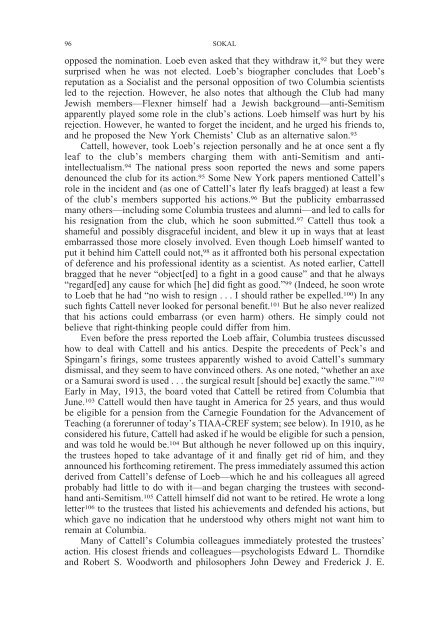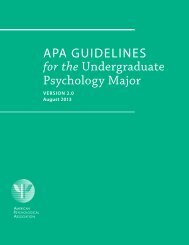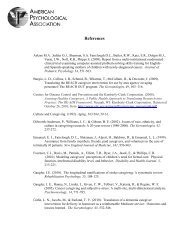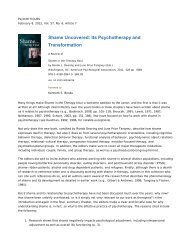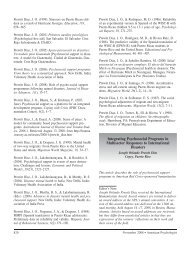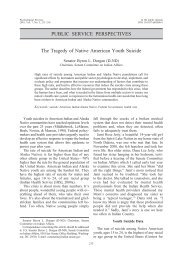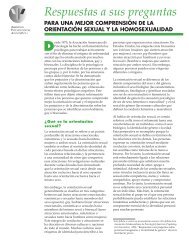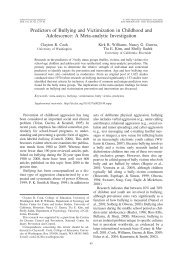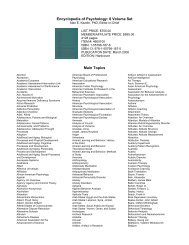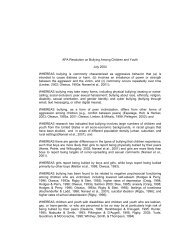James McKeen Cattell, Nicholas Murray Butler, and Academic ...
James McKeen Cattell, Nicholas Murray Butler, and Academic ...
James McKeen Cattell, Nicholas Murray Butler, and Academic ...
Create successful ePaper yourself
Turn your PDF publications into a flip-book with our unique Google optimized e-Paper software.
96 SOKAL<br />
opposed the nomination. Loeb even asked that they withdraw it, 92 but they were<br />
surprised when he was not elected. Loeb’s biographer concludes that Loeb’s<br />
reputation as a Socialist <strong>and</strong> the personal opposition of two Columbia scientists<br />
led to the rejection. However, he also notes that although the Club had many<br />
Jewish members—Flexner himself had a Jewish background—anti-Semitism<br />
apparently played some role in the club’s actions. Loeb himself was hurt by his<br />
rejection. However, he wanted to forget the incident, <strong>and</strong> he urged his friends to,<br />
<strong>and</strong> he proposed the New York Chemists’ Club as an alternative salon. 93<br />
<strong>Cattell</strong>, however, took Loeb’s rejection personally <strong>and</strong> he at once sent a fly<br />
leaf to the club’s members charging them with anti-Semitism <strong>and</strong> antiintellectualism.<br />
94 The national press soon reported the news <strong>and</strong> some papers<br />
denounced the club for its action. 95 Some New York papers mentioned <strong>Cattell</strong>’s<br />
role in the incident <strong>and</strong> (as one of <strong>Cattell</strong>’s later fly leafs bragged) at least a few<br />
of the club’s members supported his actions. 96 But the publicity embarrassed<br />
many others—including some Columbia trustees <strong>and</strong> alumni—<strong>and</strong> led to calls for<br />
his resignation from the club, which he soon submitted. 97 <strong>Cattell</strong> thus took a<br />
shameful <strong>and</strong> possibly disgraceful incident, <strong>and</strong> blew it up in ways that at least<br />
embarrassed those more closely involved. Even though Loeb himself wanted to<br />
put it behind him <strong>Cattell</strong> could not, 98 as it affronted both his personal expectation<br />
of deference <strong>and</strong> his professional identity as a scientist. As noted earlier, <strong>Cattell</strong><br />
bragged that he never “object[ed] to a fight in a good cause” <strong>and</strong> that he always<br />
“regard[ed] any cause for which [he] did fight as good.” 99 (Indeed, he soon wrote<br />
to Loeb that he had “no wish to resign . . . I should rather be expelled. 100 )Inany<br />
such fights <strong>Cattell</strong> never looked for personal benefit. 101 But he also never realized<br />
that his actions could embarrass (or even harm) others. He simply could not<br />
believe that right-thinking people could differ from him.<br />
Even before the press reported the Loeb affair, Columbia trustees discussed<br />
how to deal with <strong>Cattell</strong> <strong>and</strong> his antics. Despite the precedents of Peck’s <strong>and</strong><br />
Spingarn’s firings, some trustees apparently wished to avoid <strong>Cattell</strong>’s summary<br />
dismissal, <strong>and</strong> they seem to have convinced others. As one noted, “whether an axe<br />
or a Samurai sword is used . . . the surgical result [should be] exactly the same.” 102<br />
Early in May, 1913, the board voted that <strong>Cattell</strong> be retired from Columbia that<br />
June. 103 <strong>Cattell</strong> would then have taught in America for 25 years, <strong>and</strong> thus would<br />
be eligible for a pension from the Carnegie Foundation for the Advancement of<br />
Teaching (a forerunner of today’s TIAA-CREF system; see below). In 1910, as he<br />
considered his future, <strong>Cattell</strong> had asked if he would be eligible for such a pension,<br />
<strong>and</strong> was told he would be. 104 But although he never followed up on this inquiry,<br />
the trustees hoped to take advantage of it <strong>and</strong> finally get rid of him, <strong>and</strong> they<br />
announced his forthcoming retirement. The press immediately assumed this action<br />
derived from <strong>Cattell</strong>’s defense of Loeb—which he <strong>and</strong> his colleagues all agreed<br />
probably had little to do with it—<strong>and</strong> began charging the trustees with secondh<strong>and</strong><br />
anti-Semitism. 105 <strong>Cattell</strong> himself did not want to be retired. He wrote a long<br />
letter 106 to the trustees that listed his achievements <strong>and</strong> defended his actions, but<br />
which gave no indication that he understood why others might not want him to<br />
remain at Columbia.<br />
Many of <strong>Cattell</strong>’s Columbia colleagues immediately protested the trustees’<br />
action. His closest friends <strong>and</strong> colleagues—psychologists Edward L. Thorndike<br />
<strong>and</strong> Robert S. Woodworth <strong>and</strong> philosophers John Dewey <strong>and</strong> Frederick J. E.


